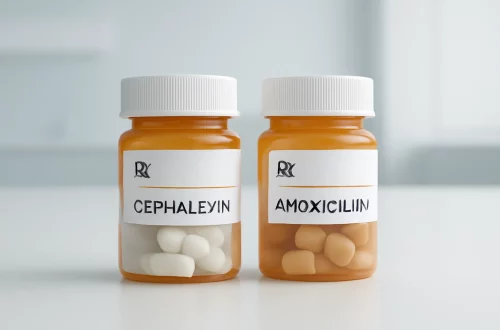
Does Extra Gum Contain Xylitol and What It Means for Your Health
Chewing gum has become a staple for many, offering a quick way to freshen breath and even improve focus. Among the various brands and flavors, Extra Gum stands out as a popular choice for its wide variety of tastes and sugar-free options. One of the key ingredients often discussed in relation to sugar-free gum is xylitol, a sugar alcohol that has gained attention for its potential health benefits. Understanding whether Extra Gum contains xylitol is crucial for those who are health-conscious, especially individuals managing dental health or those on specific diets.
As consumers become more aware of the ingredients in their food and beverages, the presence of xylitol and its benefits or drawbacks becomes a topic of interest. The conversation surrounding sugar substitutes and their impact on health is ongoing, with various studies shedding light on how these ingredients interact with our bodies. This article delves into the specifics of xylitol, its role in chewing gum, and what implications it may have for your overall health.
What is Xylitol and How Does It Work?
Xylitol is a naturally occurring sugar alcohol found in various fruits and vegetables. Its sweet taste makes it a popular alternative to traditional sugar, particularly in sugar-free products. Unlike regular sugar, xylitol has a lower glycemic index, meaning it does not cause rapid spikes in blood sugar levels. This characteristic makes it appealing for individuals with diabetes or those seeking to reduce their sugar intake.
The mechanism by which xylitol works is particularly interesting. When consumed, xylitol is absorbed in the small intestine and metabolized differently than sugar. It is not fermented by the bacteria in the mouth, which means it does not contribute to tooth decay. In fact, xylitol has been shown to inhibit the growth of harmful bacteria that can lead to cavities, making it a beneficial ingredient in dental health products.
In addition to its dental benefits, xylitol may also support overall health in other ways. Some studies suggest that xylitol can improve bone density and may have a positive effect on gut health by promoting beneficial bacteria. However, it is essential to consume xylitol in moderation, as excessive intake can lead to digestive discomfort, such as bloating or diarrhea.
The use of xylitol in products like gum allows consumers to enjoy a sweet taste without the negative effects associated with sugar. For those who enjoy chewing gum as a means of stress relief or focus enhancement, xylitol-containing varieties can provide additional health benefits that align with their lifestyle choices.
The Benefits of Chewing Gum with Xylitol
Chewing gum that contains xylitol offers several health benefits, particularly concerning dental care. One of the most significant advantages is its ability to reduce the risk of cavities. When chewed, xylitol stimulates saliva production, which helps neutralize harmful acids produced by bacteria in the mouth. Increased saliva flow also aids in the remineralization of tooth enamel, further protecting against decay.
Moreover, studies have shown that regular consumption of xylitol can lead to a decrease in the levels of Streptococcus mutans, a primary bacterium responsible for tooth decay. By inhibiting its growth, xylitol not only helps maintain oral hygiene but also contributes to fresher breath, making it a double win for gum chewers.
Another benefit of xylitol is its potential role in weight management. Since it is lower in calories compared to sugar, xylitol can satisfy sweet cravings without significantly impacting caloric intake. For individuals looking to manage their weight, incorporating xylitol-containing products like Extra Gum can be a smart choice.
Additionally, xylitol has been linked to potential respiratory health benefits. Some research suggests that it may help reduce the incidence of ear infections in children by preventing the growth of bacteria in the middle ear. While more research is needed in this area, the preliminary findings indicate that xylitol may have broader health implications beyond oral care.
While the benefits are compelling, it is important to remember that moderation is key. As with any ingredient, excessive consumption can lead to unwanted side effects. Always consider your overall diet and any specific health conditions when incorporating new ingredients.
Does Extra Gum Contain Xylitol?
Extra Gum is known for its variety of flavors and sugar-free options, making it a popular choice among consumers. When it comes to xylitol, not all Extra Gum products contain this ingredient. However, many of their sugar-free gums do include xylitol as a sweetener, which aligns with the company’s commitment to providing healthier alternatives to traditional sugary gums.
Consumers interested in whether Extra Gum contains xylitol should always check the packaging for the ingredient list. The presence of xylitol is often highlighted as a selling point due to its numerous health benefits. In addition to xylitol, Extra Gum also utilizes other sugar substitutes to achieve its desired sweetness without the calories associated with sugar.
For those who specifically seek out xylitol as part of their health regimen, Extra Gum can be a convenient option. By choosing a xylitol-containing gum, individuals can enjoy the pleasurable experience of chewing gum while also supporting their dental health. This makes Extra Gum not just a tasty treat but also a responsible choice for health-conscious consumers.
It is essential to note that while xylitol is beneficial, it should still be consumed in moderation. Keeping an eye on the total intake of xylitol from all sources is crucial, especially for individuals who may have sensitivities or digestive issues related to sugar alcohols. Always consider personal health goals and dietary restrictions when selecting products.
Potential Downsides of Xylitol Consumption
While xylitol offers numerous benefits, it is not without its potential downsides. For many, the primary concern revolves around digestive issues. As a sugar alcohol, xylitol can cause gastrointestinal discomfort when consumed in large quantities. Symptoms may include bloating, gas, and diarrhea. This is particularly important for individuals with sensitive digestive systems or those who are not accustomed to consuming sugar alcohols.
Moreover, xylitol is toxic to dogs. Even small amounts can lead to severe health problems in pets, including hypoglycemia and liver failure. Pet owners should be vigilant and store products containing xylitol out of reach to prevent accidental ingestion.
Additionally, while xylitol is generally recognized as safe for human consumption, it is essential to understand that individual reactions may vary. Some people may experience mild allergic reactions or sensitivities. As with any dietary change, it is advisable to start with small amounts to observe how your body reacts before incorporating it more fully into your diet.
Finally, while xylitol can be a useful tool in maintaining oral health, it should not be seen as a substitute for regular dental hygiene practices. Brushing, flossing, and routine dental check-ups remain vital components of comprehensive oral care.
In conclusion, xylitol can be a beneficial addition to a balanced diet when consumed responsibly. It is crucial to remain informed about its effects and to consult with healthcare professionals regarding any significant dietary changes.
**Disclaimer:** This article is for informational purposes only and should not be considered medical advice. Always consult a healthcare provider for any health-related concerns or questions.




